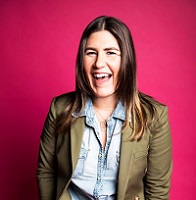Streaming May Become Less Overwhelming (and Less Expensive) Next Year
Streaming services: We’re about to enter the era of bundles, saving money in the process, study says.


Profit and prosper with the best of Kiplinger's advice on investing, taxes, retirement, personal finance and much more. Delivered daily. Enter your email in the box and click Sign Me Up.
You are now subscribed
Your newsletter sign-up was successful
Want to add more newsletters?

Delivered daily
Kiplinger Today
Profit and prosper with the best of Kiplinger's advice on investing, taxes, retirement, personal finance and much more delivered daily. Smart money moves start here.

Sent five days a week
Kiplinger A Step Ahead
Get practical help to make better financial decisions in your everyday life, from spending to savings on top deals.

Delivered daily
Kiplinger Closing Bell
Get today's biggest financial and investing headlines delivered to your inbox every day the U.S. stock market is open.

Sent twice a week
Kiplinger Adviser Intel
Financial pros across the country share best practices and fresh tactics to preserve and grow your wealth.

Delivered weekly
Kiplinger Tax Tips
Trim your federal and state tax bills with practical tax-planning and tax-cutting strategies.

Sent twice a week
Kiplinger Retirement Tips
Your twice-a-week guide to planning and enjoying a financially secure and richly rewarding retirement

Sent bimonthly.
Kiplinger Adviser Angle
Insights for advisers, wealth managers and other financial professionals.

Sent twice a week
Kiplinger Investing Weekly
Your twice-a-week roundup of promising stocks, funds, companies and industries you should consider, ones you should avoid, and why.

Sent weekly for six weeks
Kiplinger Invest for Retirement
Your step-by-step six-part series on how to invest for retirement, from devising a successful strategy to exactly which investments to choose.
When it comes to streaming options in 2024, less might be more.
About 70% of new streaming subscribers are likely to get their subscriptions from streaming bundles — or plans that combine a streaming subscription with cable TV, broadband or wireless plans — rather than from streaming services directly, according to a new report from AlixPartners.
The news comes amid a number of major changes at streamers. These include Netflix’s controversial password-sharing crackdown fees, price hikes at several streamers — including Apple, Disney, Netflix and Warner Bros. Discovery — as well as Disney’s dispute with Charter, which left nearly 15 million customers without ESPN, FX and other Disney offerings over the summer.
From just $107.88 $24.99 for Kiplinger Personal Finance
Become a smarter, better informed investor. Subscribe from just $107.88 $24.99, plus get up to 4 Special Issues

Sign up for Kiplinger’s Free Newsletters
Profit and prosper with the best of expert advice on investing, taxes, retirement, personal finance and more - straight to your e-mail.
Profit and prosper with the best of expert advice - straight to your e-mail.
A September 11 New York Times report detailing the eventual resolution of the Disney-Charter dispute similarly predicted the possible implications of such fallouts for other streaming services. According to the report, millions of subscribers cancel cable-TV bundles annually, "meaning that a dwindling number of subscribers are paying rising fees for movies and TV shows that are increasingly being moved to streaming." Cable TV is "limping along" but still profitable, the report added.
That is in line with the AlixPartners report, which shows that streaming services and cable TV growth is slowing and that more and more customers are seeking alternatives as programming costs rise. The end result will be that providers are likely to be more inclined to offer bundles to help streamline processes.
Expectations for big savings with bundles
That means increased affordability for consumers, who are likely to save 20% to 50% by bundling versus picking up streaming services a la carte, according to the report. It also means fewer apps to manage, subscriptions to keep track of and separate bills to pay.
Streaming services have attempted to sway consumers to their platforms without having to go the bundling route. In 2022, for example, HBO Max (now Max) offered 40% off for new and returning customers. Disney+ began offering an ad-supported version of its service at a discounted rate. Netflix, which reportedly lost 1.2 million subscribers in 2022, similarly added a less-expensive, ad option for customers.
How the services will go about bundling is another conversation entirely, however, according to media reports. It seems predicated on which way it will go for news and sports programming, which tech companies have been encroaching on in recent years.
In a November 9 interview with CNBC, Liberty Media Chairman John Malone said it could also be determined by targeting certain services to different demographics.
“A Disney+ together with Max might be a pretty decent combination,” Malone said. “You might also see sports-related or focused bundles.”
Regardless of how the streaming bundle wars shake out, there are ways to get ahead and start saving some money on your streaming services now, including canceling unused subscriptions, considering pay-per-view and more.
RELATED CONTENT
Profit and prosper with the best of Kiplinger's advice on investing, taxes, retirement, personal finance and much more. Delivered daily. Enter your email in the box and click Sign Me Up.

Jamie Feldman is a journalist, essayist and content creator. After building a byline as a lifestyle editor for HuffPost, her articles and editorials have since appeared in Cosmopolitan, Betches, Nylon, Bustle, Parade, and Well+Good. Her journey out of credit card debt, which she chronicles on TikTok, has amassed a loyal social media following. Her story has been featured in Fortune, Business Insider and on The Today Show, NBC Nightly News, CBS News, and NPR. She is currently producing a podcast on the same topic and living in Brooklyn, New York.
-
 Nasdaq Leads a Rocky Risk-On Rally: Stock Market Today
Nasdaq Leads a Rocky Risk-On Rally: Stock Market TodayAnother worrying bout of late-session weakness couldn't take down the main equity indexes on Wednesday.
-
 Quiz: Do You Know How to Avoid the "Medigap Trap?"
Quiz: Do You Know How to Avoid the "Medigap Trap?"Quiz Test your basic knowledge of the "Medigap Trap" in our quick quiz.
-
 5 Top Tax-Efficient Mutual Funds for Smarter Investing
5 Top Tax-Efficient Mutual Funds for Smarter InvestingMutual funds are many things, but "tax-friendly" usually isn't one of them. These are the exceptions.